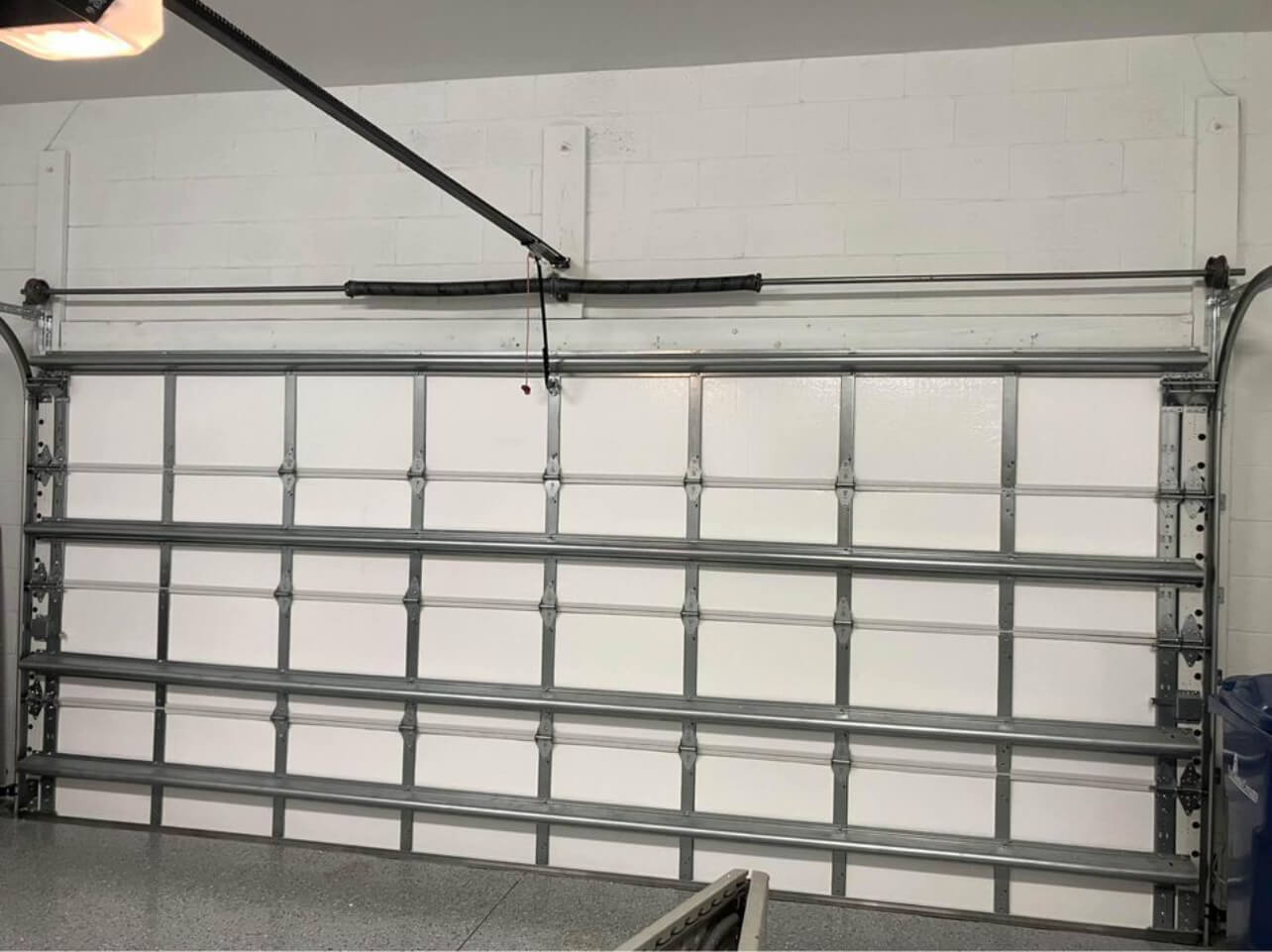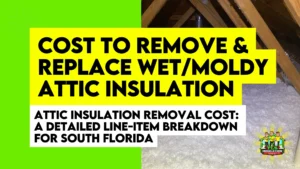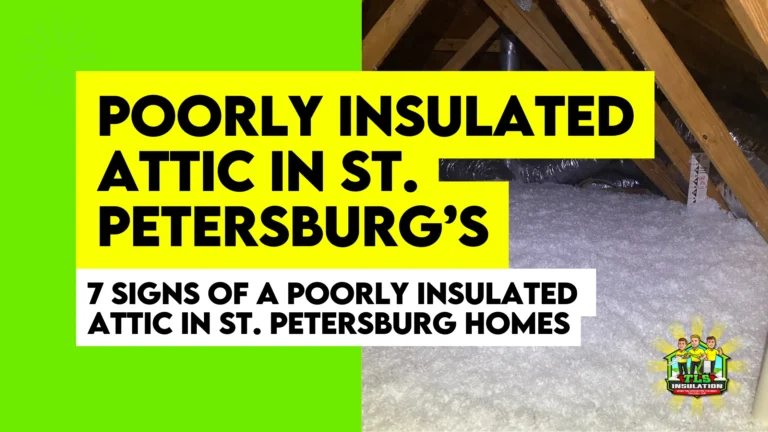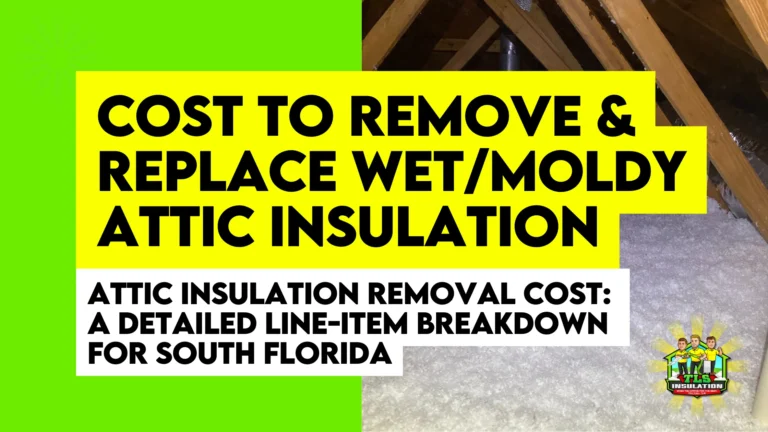In Florida’s hottest regions like Miami, Tampa, and Orlando, summer temperatures can peak above 95°F. An uninsulated garage door can easily become a heat trap, causing the heat to spread into your home, making your air conditioner work overtime and driving up energy bills. So, does garage door insulation work? Absolutely! Insulating your garage door can make a significant difference, reducing heat transfer and creating a more energy-efficient home.
Studies show that garage door insulation temperature difference can range from 10-20°F compared to an uninsulated door. This can prevent the garage from reaching extreme temperatures and helps maintain a consistent indoor climate. Insulating your garage door offers not only a cooler garage but also overall improved comfort and lower energy costs.
In this guide, we’ll set up a topic which will cover all the essentials regarding insulating your garage door
Which is the Best Insulation for Garage Doors?
Fiberglass insulation is affordable and easy to install, but may not provide the durability or moisture resistance needed in garages. Rigid foam board stands out for its high R-value, moisture resistance, and long lifespan, making it one of the most reliable choices. Reflective insulation is great for areas with extreme heat, reflecting radiant energy away from the garage. Lastly, cellulose insulation offers an eco-friendly alternative, though it may need more maintenance due to moisture susceptibility.
Rigid foam board insulation is generally the best option for garage doors due to its performance, long life, and ease of maintenance.
Why Insulate a Garage Door?
Should you Really insulate your garage door? Garage door insulation is often overlooked, but it can be the difference between a comfortable home and a sweltering nightmare. Take, for example, last summer in Miami, where temperatures soared to over 95°F. Without proper insulation, garages in such areas can exceed 120°F, turning them into heat traps that radiate warmth into your home, overwhelming your cooling system.
In regions like these, why insulate a garage door becomes critical—not just for comfort, but for energy efficiency. An uninsulated garage door can lead to significant heat transfer, turning your entire house into an oven during peak summer. This extreme heat forces your HVAC system to work harder, raising energy bills.
Does insulating a garage door help? Absolutely. By insulating your garage door, you create a thermal barrier that reduces heat loss in winter and blocks heat gain in summer. For example, studies show that insulated garage doors can reduce garage temperatures by up to 20°F compared to uninsulated doors. This temperature difference can improve your home’s energy efficiency by up to 15% and prevent strain on your air conditioning during Florida’s hottest months.
Benefits of Garage Door Insulation
- Energy Efficiency: Helps reduce the energy consumption of your house as it prevents loss of heat during winter and blocks excess heat during summer.
- Cost Savings: Reduced energy usage translates into lower utility bills, leading to significant monetary savings over time.
- Temperature Control:Maintains a stable temperature in your garage, making it a more comfortable space to work or play in, no matter the season.
- Noise Reduction: Insulating your garage door is that it can significantly decrease external noise pollution.
- Vehicle Protection: Protects your vehicle from extreme weather conditions, prolonging its lifespan.
- Increased Home Value: An energy-efficient, well-insulated garage can increase the overall value of your home, which can be beneficial if you plan to sell in the future.
Different Types of Garage Door Insulation Materials
There are various types of insulation materials available in the market for garage doors, each with its unique properties, pros, and cons. Let’s dive into some of the most common ones:
- Fiberglass Insulation: Made from tiny glass fibers, this popular insulation material is lightweight and comes in pre-cut batts or rolls. Fiberglass insulation is fairly easy to install and provides excellent heat resistance.
- Foam Board Insulation: These are rigid panels, typically made from polystyrene. They are thin, yet have a high insulating value. Foam boards can be cut into different sizes to fit your garage door panels.
- Reflective Insulation: This type of insulation is typically made from aluminum foil adhered to plastic or cardboard sheets. It works by reflecting radiant heat, making it particularly effective in hot climates.
- Cellulose Insulation: Made from recycled paper products, cellulose is an eco-friendly insulation material. It is typically blown into place and can be a great option for insulation upgrades.
Choose the right insulation material based on your specific needs, climate, and budget. Consulting with an insulation professional can ensure you make the most informed decision.
Cost Considerations When Installing Garage Door Insulation
When considering insulating your garage door, it is important to also factor in the cost of the project. While insulation can help regulate the temperature of your garage and potentially lower your energy bills, the upfront cost may not be within your budget.
However, it is important to weigh the long-term cost savings versus the initial investment. Installing garage door insulation can also increase the value of your home, making it a smart investment in the long run.
Additionally, there are a variety of insulation materials and options available, so it is essential to research and choose the one that best fits your needs and budget. Don’t let the cost deter you from reaping the benefits of a well-insulated garage door.
Maintaining Your Garage Door Insulation
Proper maintenance of your garage door insulation is crucial to ensuring its effectiveness and durability over time. Here are some tips to help you keep your insulation in top shape:
- Regularly Check for Damage: Inspect your insulation for any signs of moisture, mold, or physical damage. Regular checks can identify potential issues early and prevent further deterioration.
- Clean the Insulation: Keep your insulation clean to maintain its effectiveness. Dust and debris can compromise the insulation’s performance. Use a vacuum or a soft brush to gently clean the surface.
- Replace Damaged Insulation: If you notice areas of the insulation that are damaged or worn out, replace them as soon as possible. Damaged insulation can significantly reduce its ability to regulate temperatures and increase energy efficiency.
- Check for Pests: Some insulation materials, like cellulose, can attract pests. Regularly inspect your insulation for any signs of infestation and take appropriate pest control measures if needed.
- Annual Professional Inspection: Consider getting a professional to inspect your garage door insulation yearly. They can detect hidden issues and provide expert advice on maintaining and improving your insulation.
Remember, the key to maximizing the benefits of your garage door insulation lies in regular maintenance and timely repairs.
Frequently Asked Questions (FAQs)
Does garage door insulation work in extreme heat?
Yes, garage door insulation works effectively in extreme heat by creating a thermal barrier that prevents hot air from seeping into your garage. This can lower the temperature inside the garage by up to 20°F, making it more comfortable and reducing the strain on your cooling system.
What is the temperature difference between insulated and uninsulated garage doors?
The garage door insulation temperature difference can be as much as 15-20°F. Insulated doors keep the garage significantly cooler in hot weather and warmer in cold conditions, improving your home’s overall energy efficiency.
Does insulating a garage door help reduce energy bills?
Yes, insulating your garage door helps reduce energy bills by maintaining a more stable temperature in the garage and preventing heat loss or gain. By reducing the load on your HVAC system, you can save up to 15% on energy costs annually.
What is the best insulation for garage doors in hot climates?
The best insulation for garage doors in hot climates is typically rigid foam board or fiberglass insulation. These materials provide excellent thermal resistance and help maintain cooler garage temperatures, even in Florida’s hottest areas.
How much does garage door insulation cost?
The cost of garage door insulation depends on the type of insulation used. On average, fiberglass insulation costs between $1 to $2 per square foot, while rigid foam board can range from $3 to $5 per square foot. The initial investment can pay off through lower energy bills and a more comfortable living space.










